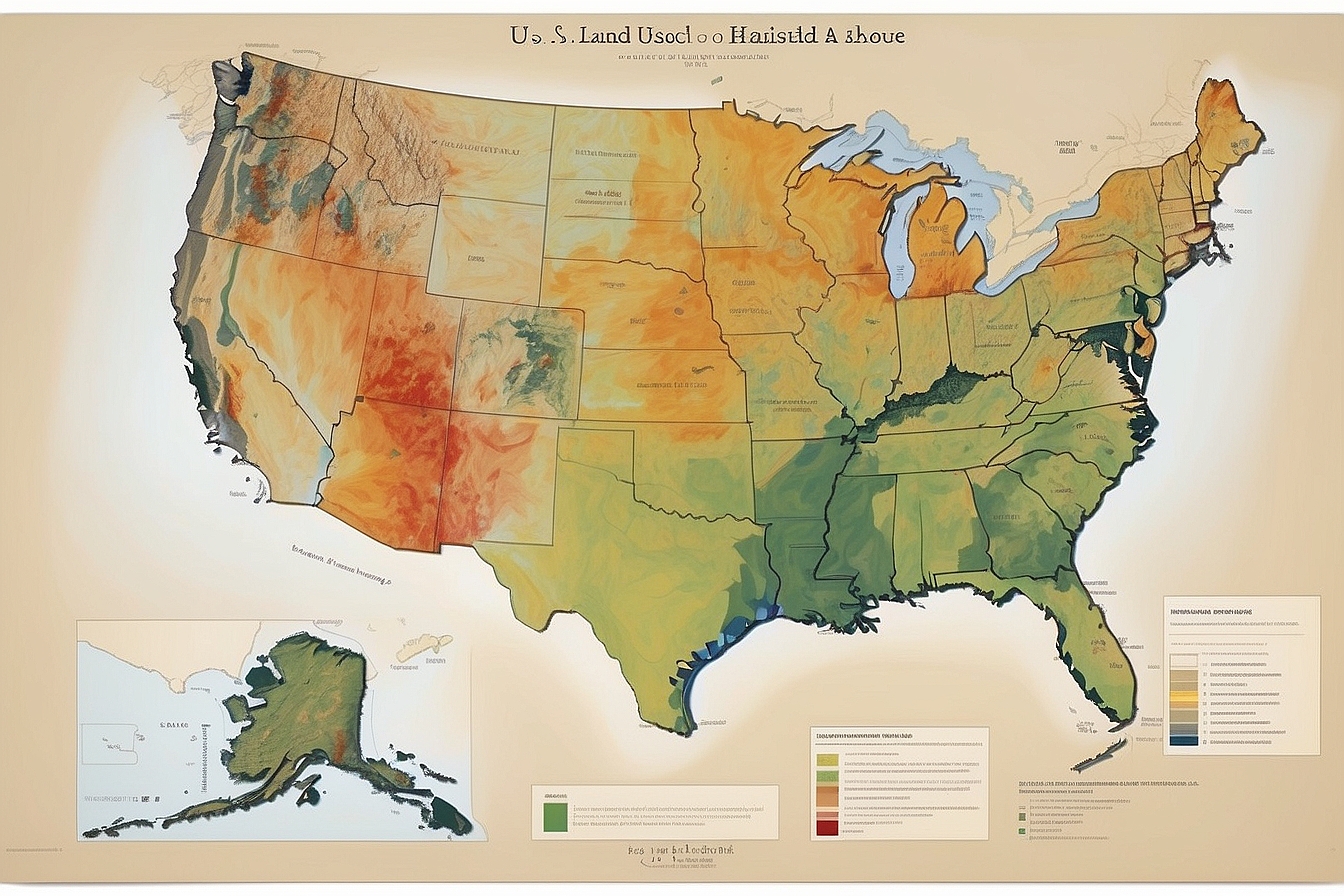It’s not always immediately obvious how land ownership fits within our collective journey towards a more sustainable world. Indeed, many of us have found this link slightly elusive.
Yet, an astonishing 70% of the world’s less advantaged populations reside in rural hinterlands, with their day-to-day existence intimately entwined with that very land. It’s essential to appreciate just how transformative secure land rights can be — from nurturing environmental guardianship and bolstering community solidarity, to fuelling economic advancement.
Let’s delve into this topic and uncover just how pivotal these connections are for ushering in a future that is both greener and fairer for all.
Key Takeaways
- Land ownership is crucial, with 70% of the world’s less privileged living in rural areas and depending on it for their livelihoods.
- Secure land rights lead to better land and natural resource management, strengthening both communities and ecosystems.
- Recognising property rights can stimulate local economies, improve access to credit, and create job opportunities, especially in agriculture.
- Effective land governance helps protect the environment by promoting responsible use of resources and combating climate change through sustainable practices.
- By ensuring secure tenure for marginalised communities and indigenous peoples, we support social equity and preserve cultural heritage.
The Importance of Land Ownership for Sustainable Development
Land ownership is a critical asset for sustainable development, playing a key role in economic development and impacting rural communities and indigenous peoples. Effective land governance policies and institutions are essential for sustaining natural resources and promoting environmental conservation.
Land as a critical asset
We recognise land as a fundamental component of the world’s natural resources. It anchors all aspects of our lives, from providing space for agriculture to sustaining biodiversity and serving as a base for housing and infrastructure development.
Our commitment to sustainable land management shapes the future, bearing in mind that how we use this precious asset will define the legacy we leave for generations to come.
Holding onto land responsibly ensures that environmental conservation goes hand in hand with economic development. We foster rural community development by improving livelihoods through secure property rights which encourage better land use and resource management practices.
As stewards of the earth, we must embrace policies that support sustainable land ownership and governance, paving the way not just for stronger economies but also healthier ecosystems.
Role in economic development
Land ownership plays a crucial role in driving economic development, particularly in rural areas. It enables individuals and communities to leverage their land as an asset for various economic activities such as agriculture, forestry, and small-scale enterprises.
Secure land ownership provides the foundation for accessing credit and investment opportunities that contribute to local economic growth, job creation, and poverty reduction. Furthermore, clear land rights can attract private sector investments in sustainable natural resource management, boosting productivity and creating pathways for inclusive economic development within rural communities.
Securing land tenure also fosters stability in agricultural production systems which is fundamental for food security while supporting the creation of value chains that connect rural producers to national and international markets.
Impact on rural communities and indigenous peoples
Government regulations on land ownership have a direct impact on rural communities and indigenous peoples. Sustainable land development practices are crucial for their livelihood improvement.
By ensuring secure tenure and protecting the rights of marginalised communities, sustainable land management can contribute to the economic and social well-being of these groups.
Natural resources management plays a pivotal role in rural development, as it directly affects the lives of indigenous peoples who often rely on the land for their sustenance. Therefore, it is essential to implement policies that safeguard their rights and ensure that they benefit from sustainable land development initiatives.
Land governance policies and institutions
Effective land governance policies and institutions play a crucial role in ensuring sustainable development. These regulations are essential for managing natural resources, protecting the environment, and promoting equitable access to land.
They also contribute to mitigating climate change and supporting economic growth within communities. By upholding secure tenure and safeguarding the rights of marginalised groups, such policies can lead to improved livelihoods and social stability.
Additionally, well-structured land governance systems foster responsible land use that benefits both present and future generations.
How Securing Land Ownership Can Contribute to Sustainable Development
Securing land ownership can contribute to sustainable development by ensuring secure tenure, protecting the rights of marginalised communities, and having implications for climate change mitigation.
To learn more about the importance of land ownership for sustainable development, keep reading!
Ensuring secure tenure
We ensure secure tenure by implementing clear land ownership laws and regulations, providing legal documentation to individuals and communities. This strengthens property rights, protects against unlawful eviction and encourages long-term investment in sustainable land use. Additionally, we establish transparent land management systems that promote fair access to natural resources. This fosters responsible stewardship of the environment and ensures equitable distribution of wealth generated from land use.
Protecting the rights of marginalised communities
- Ensuring secure tenure provides marginalised communities with the legal foundation to defend their land rights.
- Empowering women and vulnerable groups through land ownership fosters social equity and economic stability.
- Recognising indigenous land rights cultivates cultural preservation and sustainable resource management.
- Providing legal support and education empowers marginalised communities to advocate for their land rights.
- Reducing land conflicts through clear property rights enables marginalised communities to pursue sustainable livelihoods.
Implications for climate change mitigation
Securing land ownership plays a crucial role in mitigating climate change.
Conclusion
In conclusion, land ownership plays a vital role in sustainable development. It empowers communities and boosts economic growth. Additionally, secure land tenure can safeguard the rights of marginalised groups and contribute to efforts in climate change mitigation.
Implementing effective governance policies is crucial for ensuring equitable access to land resources and fostering sustainable development for all.
FAQs
1. What is sustainable development in relation to land ownership?
Sustainable development involves using land responsibly so natural resources are preserved for future generations, and effective land ownership plays a vital role in this.
2. How do government regulations affect land ownership for sustainable development?
Government regulations set rules on how land can be used, helping ensure it’s managed in ways that support long-term sustainability and responsible natural resources management.
3. Can owning land contribute to better management of natural resources?
Yes, when individuals or groups take responsibility for their owned land, they’re more likely to engage in practices that protect and sustainably manage natural resources.
4. Why is secure land ownership important for sustainability?
Securely owned land gives owners the incentive to invest time and effort into managing their property sustainably because they know they have a long-term interest in its health and productivity.





